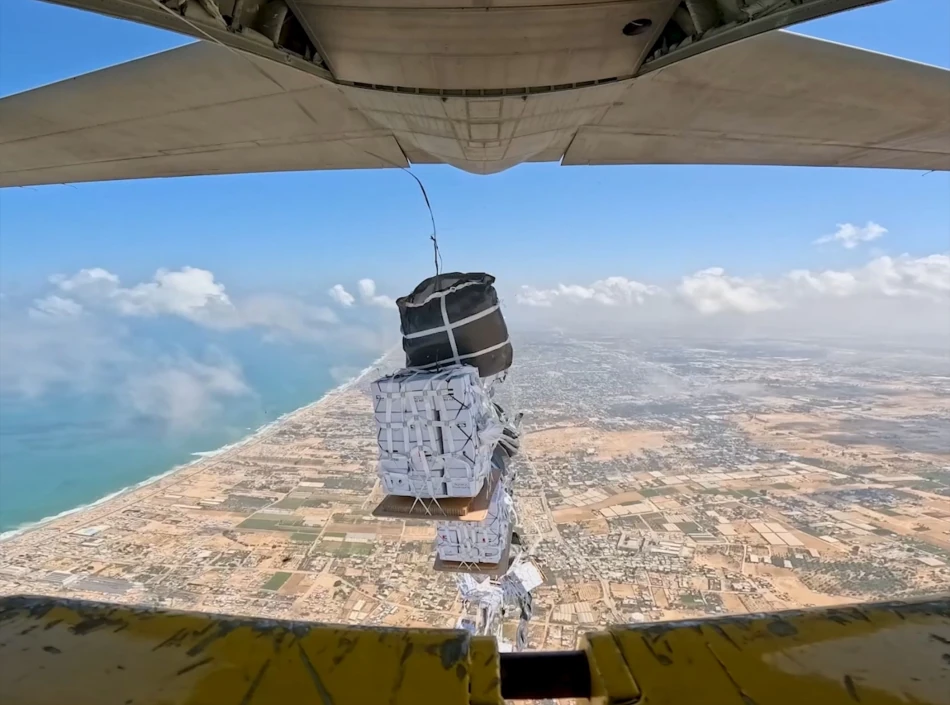
UAE Executes 81st Aerial Humanitarian Airlift Under 'Birds of Goodness' Initiative to Support Gaza
UAE Delivers 81st Airdrop to Gaza as International Humanitarian Efforts Intensify
The United Arab Emirates has completed its 81st humanitarian airdrop to Gaza as part of its "Birds of Goodness" operation, marking a sustained commitment to Palestinian relief efforts that has now delivered over 4,076 tons of aid. The latest mission, conducted in partnership with Jordan, Germany, and Indonesia, underscores how Gulf states are increasingly taking leadership roles in international humanitarian crises while Western nations grapple with complex diplomatic constraints.
Multilateral Approach Gains Momentum
The UAE's collaboration with Jordan, Germany, and Indonesia in this latest airdrop reflects a broader trend toward multilateral humanitarian responses that bypass traditional diplomatic bottlenecks. Jordan's participation is strategically crucial, given its shared border with the occupied territories and its role as a regional stability anchor. Germany's involvement signals European engagement beyond official EU channels, while Indonesia's participation brings the world's largest Muslim nation into a coordinated relief effort.
This partnership model differs significantly from the more politically charged unilateral aid attempts seen from other nations, offering a template for sustained humanitarian intervention that could prove more acceptable to all parties in the conflict.
Gulf States Fill Humanitarian Leadership Vacuum
The UAE's consistent delivery of aid—now exceeding 4,000 tons—positions the Emirates as a key humanitarian actor in the Middle East crisis. This sustained effort contrasts with the more sporadic aid deliveries from Western nations, many of which have faced domestic political pressure over their Gaza policies.
The Emirates' approach mirrors its broader foreign policy strategy of humanitarian diplomacy, similar to its role in Afghanistan following the Taliban takeover and its aid coordination during various regional crises. This positions the UAE as a pragmatic intermediary capable of operating where larger powers face political constraints.
Operational Challenges and Strategic Implications
Airdrops remain logistically complex and costly compared to ground-based aid delivery, but they offer the advantage of bypassing border restrictions and security concerns that have limited other aid channels. The UAE's ability to sustain 81 consecutive operations demonstrates significant logistical capabilities and financial commitment.
The involvement of Emirati charitable organizations in preparing aid packages also reflects the country's strategy of combining state resources with private sector and civil society engagement—a model that has proven effective in previous international relief efforts.
Regional Diplomatic Dividends
For the UAE, this humanitarian leadership serves multiple strategic purposes beyond immediate relief. It strengthens ties with Jordan, a crucial regional partner, while building goodwill across the Arab world at a time when the Emirates seeks to balance its Abraham Accords relationship with Israel against broader regional sentiment.
The operation also positions the UAE as an indispensable humanitarian actor, potentially giving it greater influence in eventual post-conflict reconstruction efforts and regional diplomatic initiatives.
Most Viewed News

 Sara Khaled
Sara Khaled






